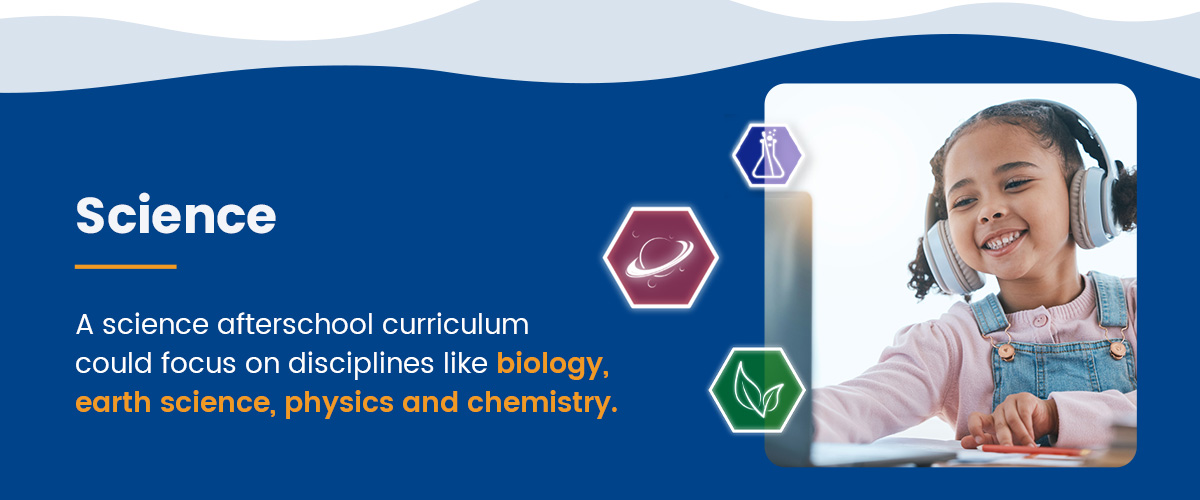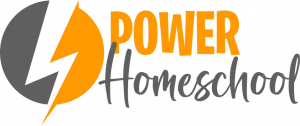Whether your child needs extra time to understand challenging school subjects or loves learning new things, an afterschool curriculum offers additional attention and assistance in areas traditional schools may not offer.
Afterschool learning can be valuable for students enrolled in traditional schools. Use our guide to understand how these supplemental courses work and where to begin.
Importance of Afterschool Learning
Afterschooling curriculum can improve skill development and enhance academic performance. Here are the top three benefits of afterschool learning for your child.
1. Enhances Traditional Education
A supplemental afterschool curriculum expands your child’s horizon beyond the classroom, allowing them to understand topics more thoroughly and enrich their learning experience. For example, when lessons in traditional schools ignite new passions in your child, they can explore these specialized interests in an afterschool curriculum. Broadening their knowledge may inspire a lifelong love for learning and a positive outlook on education. It also creates individualized learning opportunities to spend more time on challenging subjects.
2. Improves Academic Performance
Engaging in afterschool programs may improve student satisfaction, leading to better attendance and higher grades. These programs typically include technology resources and tools that may be unavailable at many schools, such as interactive videos, audiobooks and other digital programs that enhance the learning experience, keep your child engaged and build digital literacy to prepare them for our tech-reliant future. An afterschool curriculum may also get your child in the habit of doing schoolwork at home, improving their homework completion rates.
3. Builds Essential Skills
Use supplemental homeschool classes to strengthen your child’s core skills, such as numeracy, literacy, critical thinking and problem-solving. Organized afterschool activities teach young learners to become more organized, disciplined and effective at time management.
Confidence is crucial in a traditional school setting. Children who spend extra time mastering topics may experience less test anxiety and enjoy their coursework more. Additionally, afterschool programs focus on comprehension instead of merely preparing students to take tests, creating self-efficacy that is beneficial for success in life and school.
How to Integrate Afterschool Curricula
Let’s explore the benefits of various afterschool programs and how to integrate them naturally into your child’s school day.
STEM
Science, technology, engineering and mathematics education equips children with skills that help them thrive in in-demand careers and develop an interest in emerging fields. STEM allows students to build on life skills, such as creativity, critical thinking and problem-solving.

An afterschool STEM curriculum may include flexible, individualized, self-paced courses to help students develop their knowledge. Look for topics that match your child’s learning abilities and needs. Check that the curriculum aligns with their education level and find programs with fun activities and resources that make information easy to understand.
Reading
Reading afterschool programs may enhance your child’s analytical thinking, knowledge, cultural literacy, communication skills and self-expression. Supplemental reading classes improve reading fluency, vocabulary building, comprehension, writing and spelling.
Find a curriculum that teaches your child to develop a love for reading through video-based lessons, supplemental materials and e-books and offers engaging practice challenges, assessments and retention drills to boost their skills.
Math
Does your child need help grasping and retaining complex math concepts? A self-paced afterschool math curriculum gives students more time to thoroughly understand and master each topic.
A helpful math afterschool curriculum may include digital math books, engaging video lessons, interactive course materials, real-life mathematical applications, memorization drills and comprehensive exams and reviews — all in a comfortable environment that is conducive to learning.
Science
An afterschool science course is perfect for encouraging students to explore their natural curiosity about scientific concepts. Science courses also enable students to develop logical thinking and problem-solving skills that may be beneficial in everyday life, such as investigating how the natural world works.
A science afterschool curriculum could focus on disciplines like biology, earth science, physics and chemistry. Each introduces students to scientific and investigative thinking, hands-on science project experiments, solid foundational knowledge for more in-depth topics at school or Advanced Placement or honors courses for educational enrichment for advanced students.
Foreign Language Learning
An afterschool foreign language curriculum offers many benefits, especially in the early stages of learning. Children can gain cultural exposure, appreciation for different cultures and languages and improved listening, speaking and cognitive skills. Cultural benefits may mostly apply to language courses that provide cultural insight into beliefs, history, customs, food and art.
Look for an interactive foreign language course that teaches reading, writing and speaking skills through engaging videos.
The Role of Parents in an Afterschool Supplemental Curriculum
Parents are responsible for maximizing their children’s afterschool experience. Here are a few things you can do to strengthen your child’s enthusiasm for learning.
- Choose an appropriate course: Choose an afterschooling curriculum based on your child’s interests, needs or educational goals. From there, decide whether they need a self-paced course or structured learning and choose a curriculum that includes educational games, reading material or interactive videos, depending on their learning style.
- Ensure the afterschool program complements the public school program: Regardless of why you choose a particular afterschool curriculum for your child, make sure it matches what they currently learn in school, whether it teaches them the basics or in-depth knowledge.
- Offer support and monitor progress: Most importantly, be there to help your child when they need it. Supplemental learning is an excellent family bonding opportunity that creates fun memories. You can also monitor their progress and offer feedback.
Implement an Afterschooling Curriculum With Power Homeschool
An afterschool curriculum may help your child thrive at school by letting them master academic concepts at their preferred pace. Power Homeschool is the official provider of hundreds of Acellus® courses that help your child achieve their goals.
Our self-paced, flexible courses cater to various learning styles to help your child enjoy education and effectively understand concepts. Whether your child needs to learn core subjects or explore exciting electives, browse our courses today to learn more about our offerings.



